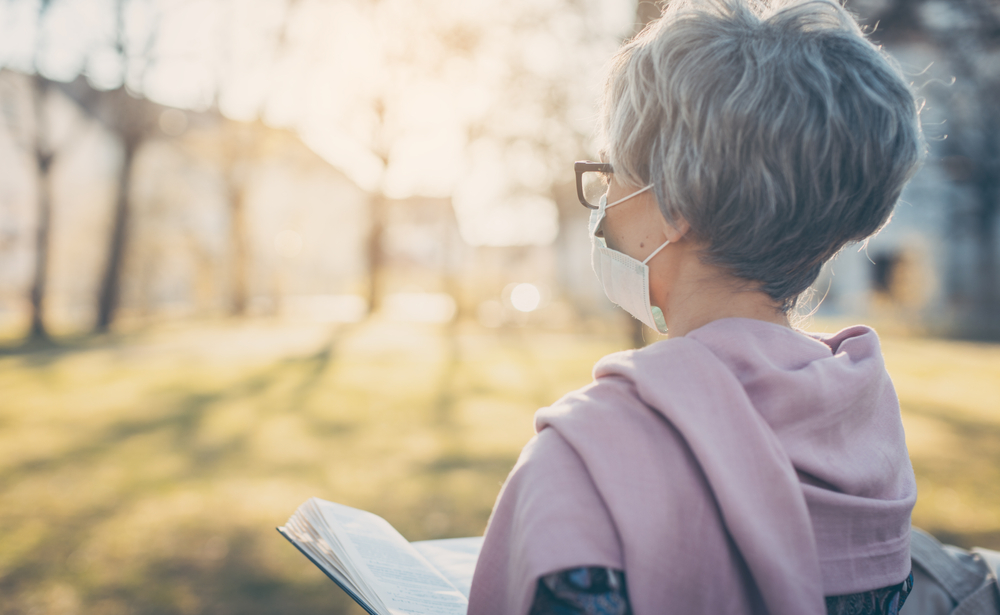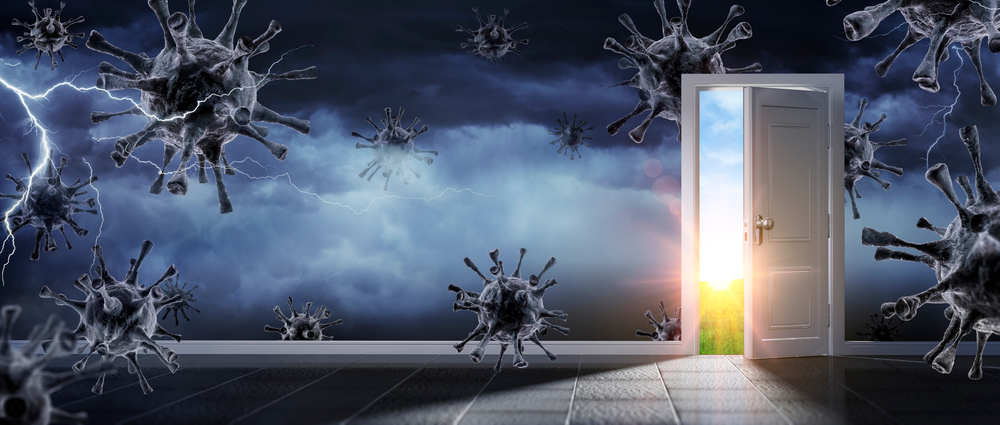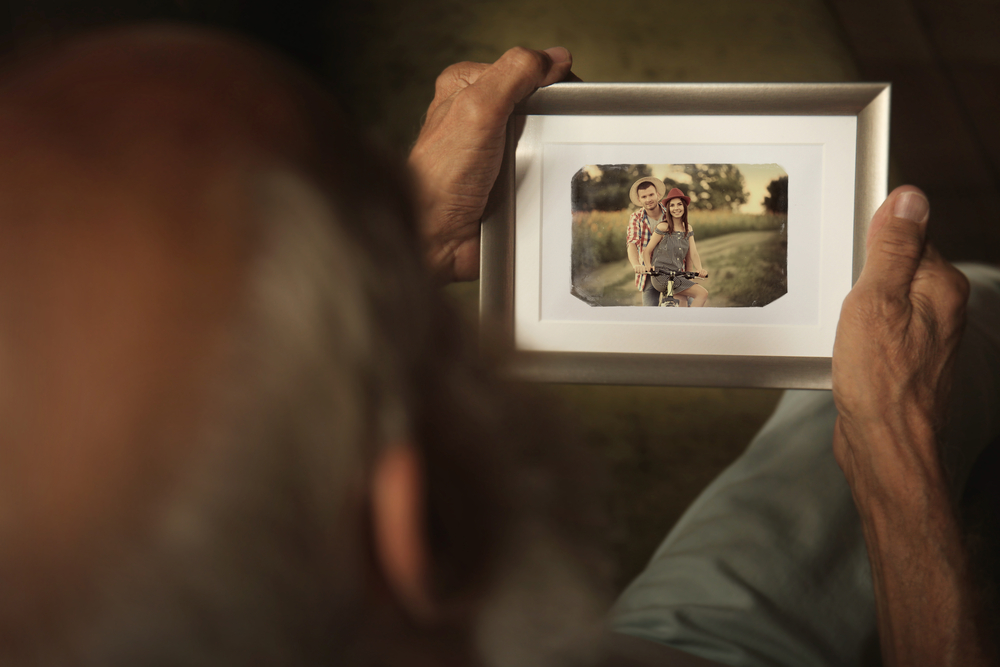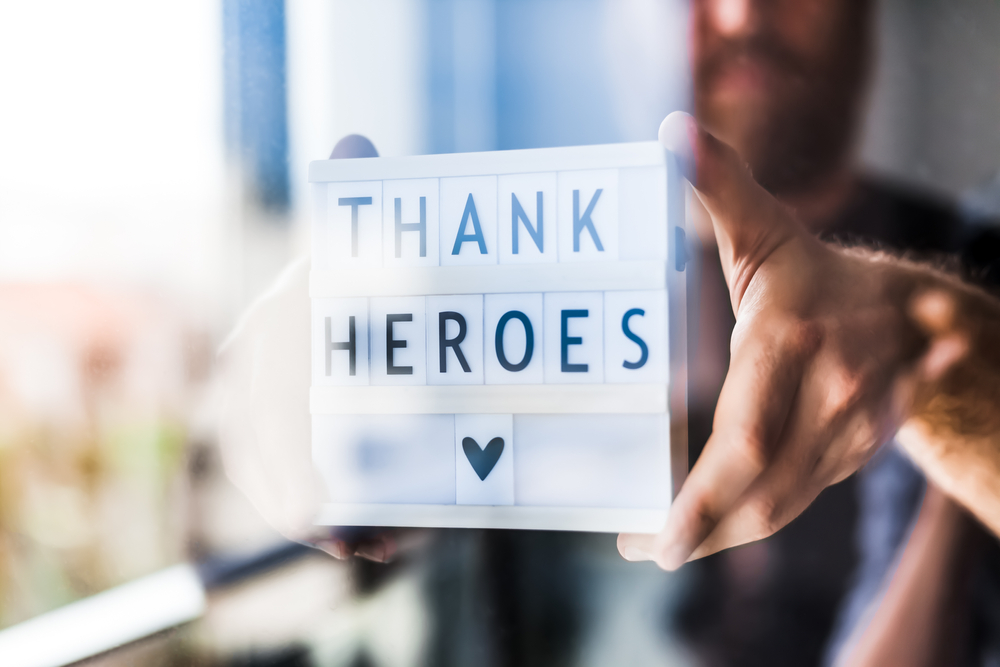The Covid-19 pandemic has thrown us into a maelstrom of fear and despair, but it is possible to fight back, writes Vickram Sethi
Yes, and how many times must a man look up
Before he can see the sky?
And how many ears must one man have
Before he can hear people cry?
Yes, and how many deaths will it take ’til he knows
That too many people have died?
The answer, my friend, is blowin’ in the wind
The answer is blowin’ in the wind
How ironic that now some scientists claim that Covid-19 is an airborne disease. The answer actually is blowing in the wind. We are in the midst of a ruthless, unrelenting, heart-rending tragedy. This is India’s darkest hour, and as the night grows darker the only light that we will see will be emitted by the pyres of our loved ones. At this moment there is no escape from Covid-19. It is a merciless, insatiable disease that affects all of us across India – so many have died and so many are struggling. It dominates the news, social media and our lives; we can barely blink without thinking about the pandemic.
However, this piece is not about politics – it’s about another pandemic emerging as a silent killer. Depression, stress, anxiety and loneliness affecting the mental health of seniors. Doctors define depression as a common but serious mood disorder that negatively affects how you feel, think, and handle daily activities such as sleeping, eating, and working. Symptoms include a persistent sad, anxious or “empty” mood, irritability, and feelings of guilt, withdrawal and pessimism. Many of us seniors are once again vulnerable, facing the risk to life, the stress of the news, the gut-wrenching images. The fear of being infected or infecting someone else. The helplessness and misery of it all. This is the perfect storm for depression and anxiety.
Stress and mistrust
Life as we knew it has dramatically changed in a matter of weeks and we are forced to isolate to prevent the spread of the coronavirus. Many of us are struggling with tragedies, death of friends and family, job losses and economic burdens. Words such as co-morbidities and anxiety disorders remind you of the fragility of human life. Seniors find themselves ruminating, feeling hopeless and helpless and, ultimately, depressed. Unpleasant news within family and friends adds to the trauma. If your own anxieties are not enough, you get bombarded by a lot of political junk on WhatsApp, social media etc. Seniors have found themselves more stressed than usual by politics and the state of the nation. The pandemic has exposed racial inequities and there is widespread mistrust of the media.
Those who are already struggling with depression and anxiety may find that the situation aggravates their feelings. Others who are used to keeping busy may suddenly find themselves alone with their thoughts, missing friends and family outside of their household. Lots of folks have lost their usual routine, and the unstructured time increases rumination and becomes a cause of depression and loneliness.
When you start thinking critical thoughts about yourself take a moment to pause and assess your feelings. Experts term this “self-talk”. This involves the things you mentally tell yourself. It is the inner voice in your mind that analyses how you interact with the world around you. Paying attention to your self-talk is a great place to start when you are trying to think more positively. If you find yourself with too much of negative self-talk, start looking for ways to change your thought patterns and reframe your interpretations. Rather than feel sad for yourself, look for a problem-solving strategy for your survival.
Isolation is the cause of loneliness. People don’t always talk about feelings of loneliness and don’t always know what to do with these feelings. Research also suggest that loneliness and depression may feed off and perpetuate each other; meaning, the more lonely you are the more depressed you are likely to feel and vice versa. If you are experiencing loneliness you need to distract yourself – this will help you to stop ruminating about everything that is wrong.
Talk, write, create
Find creative ways to connect with family and friends. Maybe write an old-fashioned letter, or call someone on the phone, particularly on the days you are feeling lonely. Place calls using video chat services like Facetime or Zoom. If you are tech-savvy, post and respond to other friends’ posts on social media. Create something – expressing yourself through creative means can be therapeutic, whether it involves painting, writing or dancing. If you find it hard to express your feelings to others, maintain a journal and write each day. You could even start a blog, writing about your feelings and experiences for others to read. You would be surprised at the response you get – maybe you’ll discover old friends or make new connections. However, do be wary of new people you meet on social media – do not share personal information that someone could misuse.
Write short stories, or start the novel you always wanted to write. Make a bucket list of things you want to do in your lifetime. It’s always fun to make travel plans. Pamper yourself, finding ways to comfort yourself; even when you are lonely you can improve your mental health. Creativity can become a form of meditation. Whatever you do to combat loneliness, know that you are truly not alone and there are many things you can do to feel more connected.
Unfortunate things will happen. They could hurt and disappoint you. But believe in yourself and get your mind off the negative self-talk. This is the time to tell yourself to stop. No politics and no doomscrolling and no Covid discussion either – make this your mantra. One of the things that seniors need to remember that being older is not “old” – believe yourself to be fighting, fit and healthy. There is a lot left in those tanks; find a happiness supplement.
Eschew politics
At a time like this, when you want to seek comfort from your friends, invariably for a lot of people the conversation turns to politics. It is a difficult subject to discuss. This has been a year of immense polarisation. The pandemic, religious tension, elections and the hysterical media have made the world seem more divisive and partisan than ever before. Friends you have known for many decades become strong adversaries over political views. I am a member of my school alumni group. We were amongst the best public schools in India, our formative years were spent under a man whom we all revered as god. N L Khanolkar was an iconic school principal, a staunch secularist – no Hindu- Muslim- Punjabi- Gujarati- Maharashtrian- Kannadiga bias. He taught us right from wrong, weak from strong, and drilled into us great values. He was a true Dronacharya. Some of the members of my alumni group are admirals, air marshals, brigadiers, bankers, lawyers, engineers, builders, doctors, businessmen and men of the world. Yet there is so much of division amongst us, so much political venom being spewed in the group for and against the current dispensation. I have often wondered what makes educated people take such extreme views and flaunt them.
My belief is that when a leader propagates a certain philosophy that is also your back-of-the-mind belief, you identify with this leader and you abandon the values you have had in the past and engage in extreme support of the leader. You often reject the reality of the situation. Politics becomes a complex interplay of class, racial, religious antagonism aggravated by the social and electronic media. I see this clearly in my school group, from being brought up secular to being irrationally biased. I was brought up with the idea that one should agree to disagree. Never discuss politics or religion as it would only lead to an argument, and may not change the other person’s point of view
Hate is a virus that spreads faster than the coronavirus. My school group exemplifies this maxim. Attacks become more personal and vicious. In every group there are a few participants who post strong political messages and by default they become opinion-makers in the group. These opinion makers are classified as unique individuals and become de facto leaders (lots of wah- wah, well said, kya baat hai). Some group members begin to identify with these unique individuals and feel accountable to them. They fear that if they were to have a contrary view it would amount to defection, and choose to remain silent.
Strangely, when people know their role in a particular dynamic they predictably play the part even when doing so is self-destructive. The propaganda theory that if you lie often enough people will believe it, even yourself – this is the scary part. At this point you have to convince yourself that that if the iguanas of Papua New Guinea did not mate on the full moon night it would make no difference to your life. Similarly if xyz wants to follow a certain line of political thinking, good for them. These are mere postings on the group just for self-importance and bravado. Beyond the group they wouldn’t have the guts to go out and propagate their thoughts. The bottom line is that political differences and arguments can lead to stress and anxiety. For our own sakes we need to find communalities with our friends. Avoid political discussions; be open to hearing a genuine point of view but don’t get too bothered about it – this will make it easier to tolerate or understand people with different views. If you find it difficult to discuss political issues in a calm and constructive manner, disengage from the conversation.
Between Covid-19 restrictions, pandemic stats, violence, elections and generally bad news, it is easy to get caught up in the act of doomscrolling (a word I just discovered) – a term used to describe excessive consumption of negativity. Being negative comes easy to us – converse with a group of friends on any bad news or negative topic, and each one will have a story. There is also endless amount of negative news that the media dishes out. The unfortunate part is that negativity is addictive and infectious. We love to hear stories of sadness, misfortune, illness etc etc, to the detriment of our mental health.
While it is important to be informed, it is also important to moderate the amount of news we consume – good, bad or otherwise. Make a deal with yourself that for every negative headline you read or political discussion you get into, you will find something that will tickle your funny bone. Find humour, comedy or even watch the forbidden stuff. Phone a friend, gossip and maybe attempt something physical – cooking, painting, singing, puzzling, going for a walk or even tidying up a messy corner. Notice how much calmer you feel afterwards.
Joy and prayer
We are the gatekeepers of our own joy. We need to find happiness; unfortunately, this is not something that one can order at a takeaway. Happiness is a momentary fragrance, the memory of which lingers on; it is the cause of our joy. Moments of happiness at this point show up in the smallest of ways. While meeting friends is a near impossibility there is a new-found sense of togetherness. Technology has united us – Facetime, video calls, live broadcasts and Zoom have allowed us to reconnect with friends and family.
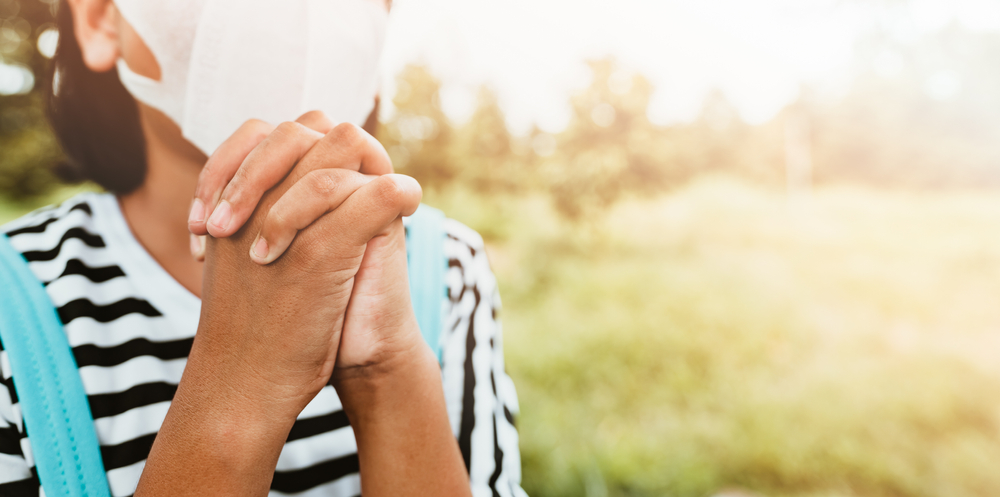 One needs to find joy and beauty in the ordinary. The smell of freshly brewed coffee, the steam rising from the cup and dancing in the air. The way a puddle glistens in the sun; the flirtation of the pigeons. The call of the koel; the fragrance of mud after the first shower. The carpet that the jacaranda and the gulmohar spread on the road. We see as much beauty as we are prepared to see and something need not be perfect to be beautiful. Cracks on a cup caused by age, or a cracked smartphone viewed from the right angle with the right attitude, is a work of art. Discovering old objects, photographs which bring back happy memories. To fight depression and anxiety we need to draw our own rainbows.
One needs to find joy and beauty in the ordinary. The smell of freshly brewed coffee, the steam rising from the cup and dancing in the air. The way a puddle glistens in the sun; the flirtation of the pigeons. The call of the koel; the fragrance of mud after the first shower. The carpet that the jacaranda and the gulmohar spread on the road. We see as much beauty as we are prepared to see and something need not be perfect to be beautiful. Cracks on a cup caused by age, or a cracked smartphone viewed from the right angle with the right attitude, is a work of art. Discovering old objects, photographs which bring back happy memories. To fight depression and anxiety we need to draw our own rainbows.
This is a time for gratitude and thanksgiving to all the frontline health workers – covid warriors, life-savers, and key workers – right from the bin collectors, the mortuary staff, the housekeeping staff and others responsible for keeping the great clockwork cogs of our society turning. Nurses and doctors risking their lives working tirelessly night and day to save others. Their efforts are a testament to the human spirit, a silver lining around the cloud of the coronavirus crisis. Say a prayer for them also, for their families who send them to work not knowing how they will return. And while you are at it call out to God by whichever name you know; beg for forgiveness, mercy and benevolence.
For if this is not the wrath of God, what is?




